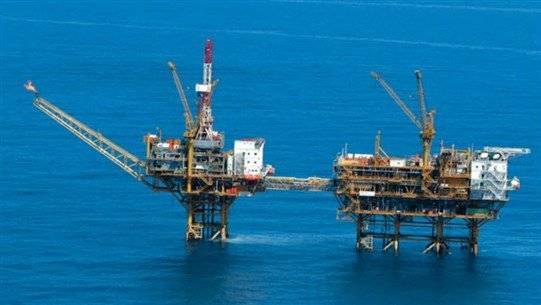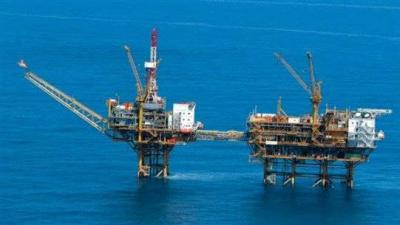If the possibility of commercially viable hydrocarbons in Lebanon's Block 9 offshore area remains uncertain, as stated in the draft message from U.S. mediator Amos Hochstein regarding the agreement on maritime border demarcation, the financing of exploration and drilling operations is also undefined in that message, as this process requires substantial funds. In this context, oil and gas governance expert for the Middle East and North Africa, Lori Hitaian, explained to "Nidaa Al-Watan" that "Lebanon is responsible for 20 percent of the costs while Total pays 80 percent of the total cost." If we consider that Total will start its work today and Lebanon lacks the financial capabilities to meet its commitment, Hitaian offers two possibilities for Lebanon: first, another oil company can take over the Lebanese state's 20 percent stake. Second, Lebanon could borrow from Total, which would recover its debt from the state after the extraction process begins. Thus, the path to oil extraction is long and complicated.
Adding to these complexities are other obstacles or challenges on the lengthy oil path that Hitaian outlined, such as:
- Total has three years to conduct the first exploration phase starting today in Block 9 if the agreement becomes effective.
- Total must announce its work plan, secure funding, provide a drilling rig for use, announce the timeframe for this process, conduct an environmental impact study for Block 9, and share its results with the public.
Therefore, the end of the three-year period does not mean that production will begin after that time; it only indicates whether there is gas presence in Block 9 or not. Moreover, the most significant challenge or barrier, according to Hitaian, is that "the discovery of gas in the Qana field does not mean that Total can start investing, as no final investment decision can be made by the company unless an agreement is reached between them and Israel on this matter." The duration of that procedure is unknown, but upon agreement, Total would announce its consensus with Israel on that point, moving to the development and production phase. Hence, it cannot be determined when Lebanon will extract oil and gas, given that this matter is contingent upon Israel's approval.
This was addressed in the agreement under provision "H," which states that "Israel and the operator of Block 9 are separately discussing to determine the scope of economic rights that belong to Israel from the potential reservoir. Israel will receive compensation from the Block 9 operator for the rights due to it from any potential reserves in the prospective reservoir; for this purpose, Israel and the Block 9 operator will conclude a financial agreement before the Block 9 operator makes a final investment decision." If we reach that point, studies will be completed, and the cost of the potential sale domestically and abroad will be identified, along with who will prepare the infrastructure and who will contribute—whether Lebanon, companies, or banks.
Subsequently, we will examine the possibility of Lebanon benefiting from the extracted gas to produce electricity, knowing that this requires the existence of power plants. Thus far, it is not possible to begin constructing power plants to accommodate gas today before signing a final agreement with the IMF, which depends on the government starting reforms. Regarding the phase of infrastructure preparation and pipeline extension, Hitaian stated, "It needs to be determined how to supply from Lebanon to Cyprus, from Cyprus to Egypt, or from Lebanon to Syria, and from Syria to Jordan or Egypt."
Therefore, all of these "complications" must be taken into account before reaching the stage of producing gas and benefiting from its revenues to truly earn the title of an "oil country."




